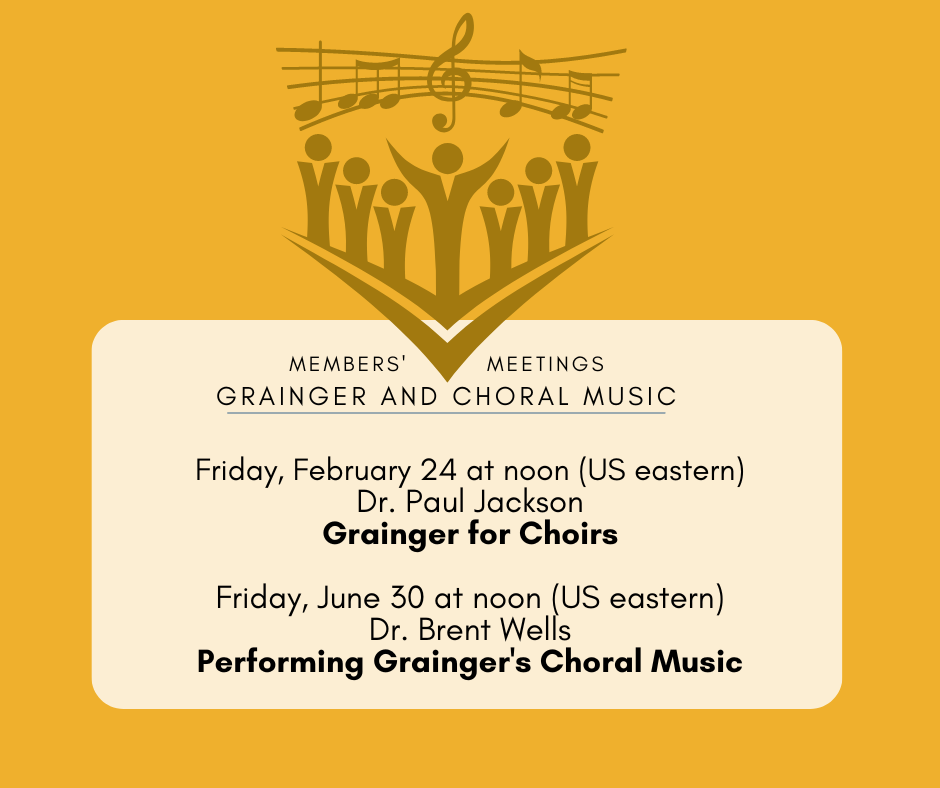
When faced with a score that calls for five male soloists, two mixed choruses (one with 10-part divisi and the other with 8-part divisi), four horns, three trombones, euphonium, tuba, timpani, side drum, cymbals, strings, mandolins, and guitars, the average conductor may be understandably apprehensive about programming such a work, particularly when it represents only c. 3 minutes of the overall concert program.
What is the practical choral conductor to do?
In this presentation, we'll explore the reality of performing Grainger's choral works from unaccompanied choruses, that fall into a more "standard" performance model, to those requiring more robust—and at times, unusual—performing forces. Grainger's concept of "elastic scoring" will be discussed as well as practical ways to perform an all-Grainger choral concert, or a set of Grainger pieces within a more typical concert program featuring several composers and styles. The presentation will focus particularly on Grainger's folk-based choral works and will conclude with an open Q&A and discussion.
 Dr. Brent Wells, Associate Professor of Choral Conducting and Ensembles, is the director of the Brigham Young University Men’s Chorus and Concert Choir. Prior to his appointment at BYU, he served as Director of Choral Activities at the College of Idaho and as conductor of Treasure Valley Millennial Choirs and Orchestras™. He has also led choral programs at the secondary level.
Dr. Brent Wells, Associate Professor of Choral Conducting and Ensembles, is the director of the Brigham Young University Men’s Chorus and Concert Choir. Prior to his appointment at BYU, he served as Director of Choral Activities at the College of Idaho and as conductor of Treasure Valley Millennial Choirs and Orchestras™. He has also led choral programs at the secondary level.
Dr. Wells received his DMA in choral conducting at Michigan State University, where he studied with David Rayl, Sandra Snow, and Jonathan Reed. He earned his BM in music education and MM in choral conducting at Brigham Young University under the tutelage of Ronald Staheli, Mack Wilberg, and Rosalind Hall.
Wells’ scholarship and creative activity focus primarily on hymnody and the folksong. He has published a series of articles in the Choral Journal discussing the folk-based compositions and collecting methodology of Percy Grainger and is also active as a composer and arranger. Wells is published by Walton Music and earthsongs, having arranged selections from the sacred harp repertory, the treasury of the African-American spiritual, and the folk traditions of Appalachia, England, Germany, Poland, Vietnam, China, Armenia, and the country of Georgia.